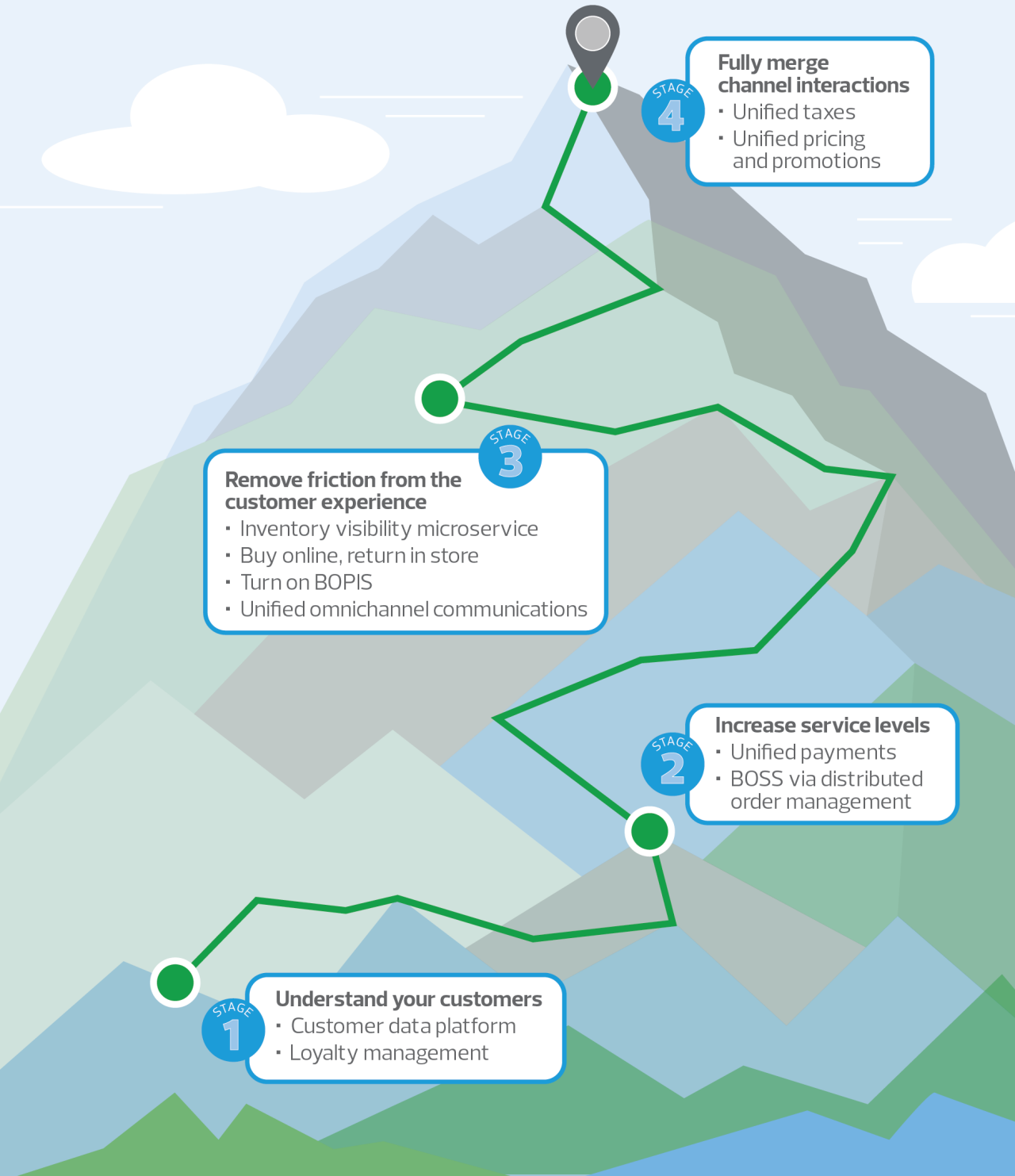The solution is designed to maximize business success by enhancing your understanding of your customers and improving the customer experience through personalized, microtargeted communications and interactions.
Implementing a unified commerce solution involves enabling specific business capabilities, a task that can seem overwhelming—but you don’t have to complete it all at once. You can take a scalable, multistage approach by creating a custom business case and road map to enable capabilities over time.
A priority for any retailer is to remove friction in customers’ interactions across channels, which will unveil information about their preferences and how they make buying decisions. You can use this information to increase relevance and ease the buying process, improving the customer experience and ultimately boosting sales. Below we take a closer look at this priority and other steps to include in a road map and examine the capabilities needed for a unified commerce solution.


